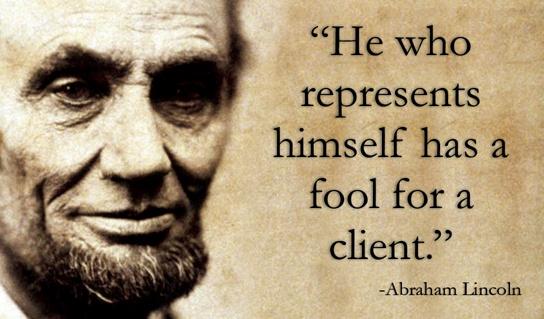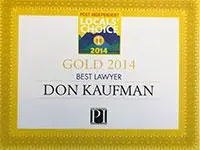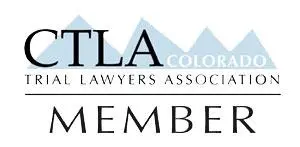
Attorney advertising is not a new phenomenon. Abraham Lincoln advertised in his local Illinois newspaper in 1859. What humanity could not have envisioned “seven score and nineteen years ago” is attorneys would be marketing their trade all over the television, radio, internet, and even Facebook.
Most Americans totally agree on perhaps one thing: nearly all attorney mass media advertising is tacky, tasteless, and provides no useful information. Grandiose and implied promises followed by the disclaimer: “While I can’t promise the same result in your case – I will get you all the money you deserve!” According to the United States Supreme Court, in the case of Bates v. State Bar of Arizona, lawyers have a First Amendment Right to advertise. Meaning that although it might be in very poor taste, much of this nonsense is legal.
If a Consumer Is Faced With a Real Legal Challenge, Reliance on Outrageous Marketing Could Be Hazardous to Your Case
How can an informed consumer see through the smokescreen of superficial attorney promotions and identify real answers, solutions, and the most reliable probability of achieving the best legal result? The internet. Obvious? Not necessarily. A simple internet search can produce purchased results that are not all informational, and that might not lead the consumer to the best possible outcome.
There are several possible considerations to truly investigate and ascertain what attorney is the best fit for your particular legal challenge.
First
“If it sounds too good to be true – it probably is.” Let your instincts guide you in the first instance. An attorney is really only as good as she or he is on “your” specific case. Testimonials can be sincere and should be evaluated as they can have great value in determining if the attorney is a good fit for you. Bragging about millions or billions in other cases can be dangerously misleading concerning your specific situation. The result in your case should reflect the evidence in your case alone. If you have a million-dollar lawsuit, based on the evidence, then what another client achieved twenty years ago is not relevant to you or the court that might decide your fate.

Second
The website www.avvo.com is an online marketplace for legal services that provides lawyer referrals and access to a database of legal information consisting primarily of previously answered questions. The lawyer profiles may include client reviews, disciplinary actions, peer endorsements, and lawyer-submitted legal guides. You can get answers to legal matters for free. You can type in a legal issue and get a list of attorneys who have expertise in that area. Then, you can evaluate the attorneys’ actual unsolicited reviews, endorsements, and disciplinary history.

Bad Feedback Can Be Good
Bad feedback can be a good indicator of a bad attorney or a great attorney. I recently stayed at a hotel that had this feedback. “We tried to party all night, drink, smoke weed, and the hotel – terrible – kicked us out.” That lousy feedback was quite positive if you want a good night’s rest. An unfortunate result can be the result of weak evidence or a client’s lousy participation in his or her case. Such a result may cause a consumer to leave bad feedback but might not accurately describe the lawyer’s representation, only the result.
If an attorney has bad feedback and it is ridiculous, nonsensical, or obviously the attorney’s competitor dropping a “one star” without explanation, disregard it. Most “Millennials” disregard a 100% positive rating as, at best, not enough feedback to be representative of performance and, at worst, fake. There can always be one unhappy client who is 100% legitimate: where, perhaps, the case did not go their way. In a complex world of intense litigation, this is almost to be expected. Use all feedback, even the bad, as information to make an educated decision.

Good Feedback Can Be Bad
Unsolicited good feedback speaks for itself and can be mostly relied upon. There is fake good feedback, but it is typically obvious. Very few people go to an attorney and have “the best experience they have ever had.” The litigants almost never enjoy intense litigation. Attorneys do not walk on water. If the good feedback speaks to you, it could be because the attorney did a good job. “If it sounds too good to be true – it probably is.”
If you reach out to a dependable attorney with an email outlining a synopsis of your legal issue and the attorney responds quickly, logically, and conveys useful information, that can be a “gold standard” indicator. This usually indicates that you might be in contact with an impressive attorney who can really provide you with real value in your pursuit of justice.

What You Might Discount?
Attorney-paid advertising sites (you will know them when you see them) are similar to bad, old-time yellow pages at best. At worst, they are just paid presence. Attorneys pay tremendous amounts of money to simply be listed and also advertise on attorney advertising websites. Often, the information is inaccurate. For example, you query divorce attorneys, and the site regularly will give you the names and addresses of criminal attorneys. These sites rarely provide anything more than semi-accurate contact information and what type of law the attorney practices. You must dig deeper.
Can You Trust Google?
No. Only trust your assessment, the evidence, and your instincts. Google is a handy tool in your search. Google is no substitute for your good judgment. Google is a search engine and much more. Google is not an attorney advertising site, but Google tries to give you a workers’ compensation attorney when you query Colorado workers’ compensation attorney. If you are looking for a list of attorneys who can handle “Colorado Workers’ Compensation,” Google is very good at using artificial intelligence (AI) to provide you the raw information and present you with clearly marked advertising, and in most circumstances, it is applicable to your actual geographic area.
Does Google sell advertising?
Yes, Google sells advertising, even to attorneys, but not deceptively, and in most contexts, it is germane to what you are looking for. The advertising sold is relevant to a Google search you recently might have undertaken. For example, Google tries not to display lawyer ads when you are searching for a sink for your kitchen. If you search for a Colorado Workers’ Compensation Attorney, ads from competitors may appear within the body and alongside the search result. They have some of the most sophisticated algorithms that organically and commercially genuinely strive to give you what you want. Its helpfulness should outweigh the minor marketing annoyance in most circumstances. Google also provides the searcher with reviews that can be valuable, even the bad reviews.
Review the Attorney’s Website
Last and most importantly, review the attorney’s website. If it is unprofessional, ridiculous, uninformative, dated, or too good to be true, that might be a good indicator of what you might experience if you contact that attorney. Compare attorney websites and the amount of information provided. You might not necessarily want a Ph.D. dissertation, but advertising that is informative and helpful might be a useful insight to consider when deciding who will help you in a very complicated legal process.
Make a Decision
If the website is accurate, professional, informative, and responsive, that could be a valuable appraisal of what you might expect if represented by that specific attorney. Call the attorney. Did you speak to the attorney from the website? Email the attorney. Did the actual attorney respond? Was the response informative, accurate, professional, and honest? Does the attorney have a blog? Is the blog relevant and informative? There is no substitute for doing your research and drawing your conclusions. Last, trust your instincts and, as always, go back to: “If it sounds too good to be true – it probably is.”

The Law Offices of Donald J. Kaufman is a Colorado Workers’ Compensations Attorney representing only injured workers who have been injured in Colorado. His focus is protecting the rights of injured workers’ and their families. With over 27 years of experience, Kaufman and his firm has helped thousands of injured Colorado Workers. Attorney Kaufman helps injured workers in Glenwood Springs, Rifle, Silt, New Castle, Carbondale, Basalt, El Jebel, Aspen, Dotsero, Craig, Meeker, Rangely, Debeque, Minturn, Vail, Eagle, Gypsum, Leadville, Paonia, Frisco, Breckenridge, Loveland, Denver, Grand Junction and Steamboat. Se habla espanol. Abogado de Colorado. Kaufman maintains security audio/video cameras in and around his office to protect the clients and offices. Attorney makes no express or implied guarantees concerning any outcomes. Donald J. Kaufman is responsible for the content on this website. This information is not to be interpreted as providing legal services, nor as proposing any form of legal advice. Anyone considering a lawyer should independently investigate the lawyer’s credentials and ability, and should not rely upon advertisements or self-proclaimed expertise. All content Copyright 1996-2023 © TM All rights reserved. Please do not contact Kaufman unless and until you have read and understood this Legal Disclaimer and Privacy Policy.
Donald J. Kaufman, Attorney at Law
2520 Grand Ave, Ste 110, Glenwood Springs, Colorado 81601-4195 United States
(970) 947-1776 fax (970) 384-1776








